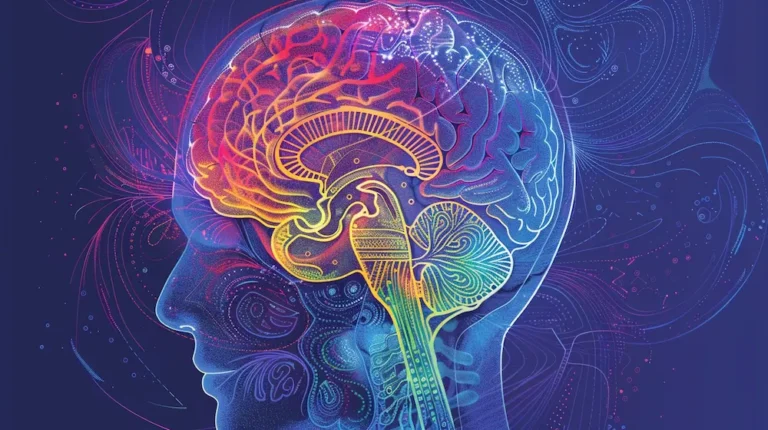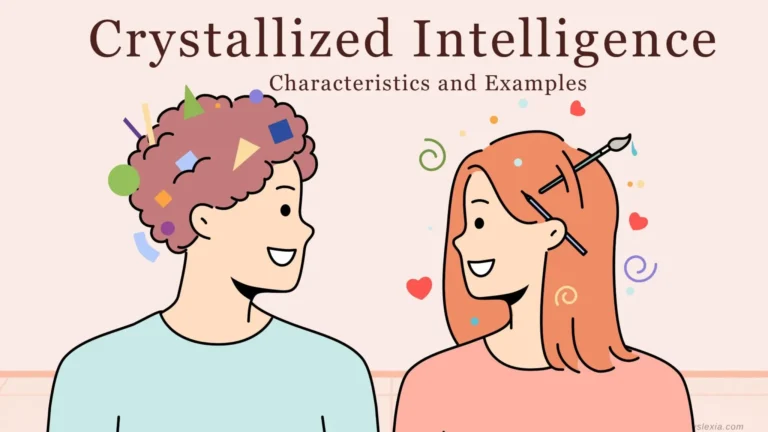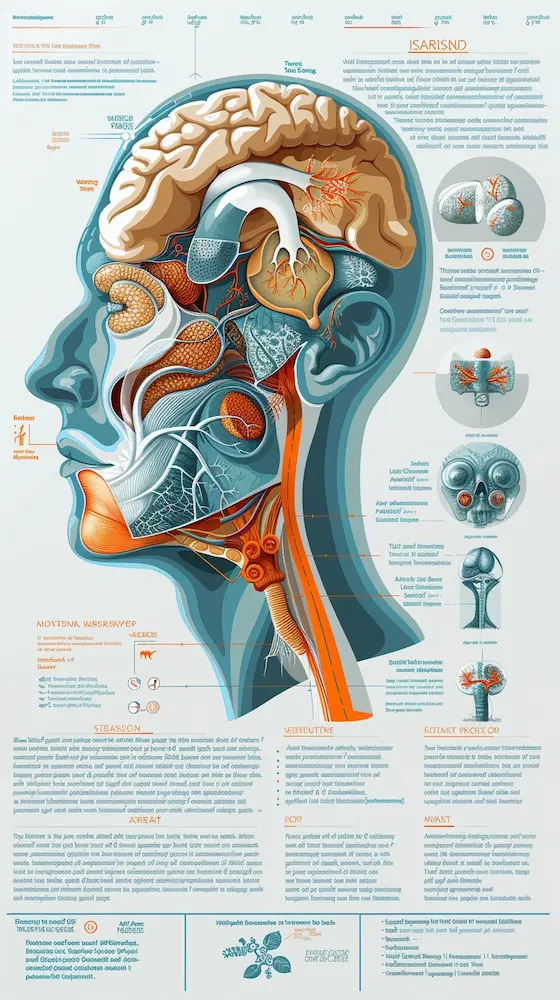Understanding the limits of human cognition is essential for anyone interested in psychology, education, or personal development.
Cognitive limits refer to the constraints on our ability to perceive, process, and retain information.
In this article, we will explore the concept of cognitive limits, their implications for learning and decision-making, and strategies for overcoming these limitations.
What Are Cognitive Limits?
Cognitive limits are the boundaries of our mental capacities.
These limits can manifest in various ways, including:
- Perception: The human brain has a limited ability to perceive stimuli from the environment.
- Attention: We can only focus on a certain amount of information at a time, often referred to as our attention span.
- Memory: Our short-term memory has a finite capacity, which affects how much information we can retain and recall.
Understanding these limits is crucial for developing effective learning strategies and improving decision-making skills.
The Biological Basis of Cognitive Limits
Cognitive limits are rooted in our biology.
Research indicates that our brains are wired to process information in specific ways, which can lead to inherent limitations.
For example, the theory of Miller’s Law suggests that the average number of objects an individual can hold in working memory is about seven, plus or minus two.
This means that when faced with too much information, our brains can become overloaded, leading to confusion and errors in judgment.
The Impact of Cognitive Overload
Cognitive overload occurs when we attempt to process more information than our brains can handle.
This can happen in various situations, such as during complex learning experiences or when making decisions under pressure.
When cognitive overload occurs, individuals may struggle to retain information, leading to poor decision-making and decreased performance.
To mitigate cognitive overload, it’s essential to break information into smaller, manageable chunks and focus on one task at a time.
Strategies for Overcoming Cognitive Limits
While cognitive limits are a natural part of human cognition, there are strategies to help overcome these challenges.
Here are some effective techniques:
1. Chunking Information
Chunking involves breaking down large amounts of information into smaller, more manageable units.
This technique can help improve retention and recall.
For example, when trying to remember a long string of numbers, it can be helpful to group them into smaller sets (e.g., 123-456-7890 instead of 1234567890).
2. Prioritizing Information
Identifying the most important information and focusing on it can help reduce cognitive overload.
When learning new material, prioritize key concepts and ideas, and avoid trying to absorb everything at once.
3. Using Visual Aids
Visual aids, such as diagrams, charts, and mind maps, can help clarify complex information and make it easier to understand.
Visualizing information can enhance memory retention and facilitate learning.
4. Practicing Mindfulness
Mindfulness techniques can improve focus and attention, helping individuals manage distractions and enhance cognitive performance.
Practicing mindfulness through meditation or deep breathing exercises can help clear the mind and improve concentration.
5. Taking Breaks
Regular breaks during learning or decision-making processes can help refresh the mind and prevent cognitive fatigue.
Taking short breaks allows the brain to recharge and can lead to improved focus and productivity.
The Role of Education in Addressing Cognitive Limits
Education plays a crucial role in helping individuals understand and navigate cognitive limits.
Effective teaching strategies can help students develop critical thinking skills and learn how to manage information overload.
For example, educators can:
- Provide clear instructions and expectations to help students focus on key concepts.
- Encourage collaborative learning, allowing students to share perspectives and insights.
- Use varied instructional methods to cater to different learning styles and preferences.
The Importance of Lifelong Learning
Cognitive limits are not fixed; they can change and adapt over time with practice and experience.
Engaging in lifelong learning can help individuals develop new skills, expand their knowledge base, and improve cognitive function.
Activities such as reading, taking courses, and participating in discussions can all contribute to cognitive growth.
Cognitive Biases and Their Impact on Knowledge
Cognitive biases are systematic patterns of deviation from norm or rationality in judgment.
These biases can affect how we process information and make decisions, often leading to errors in reasoning.
Some common cognitive biases include:
| Bias | Description |
|---|---|
| Confirmation Bias | The tendency to search for, interpret, and remember information that confirms one’s preexisting beliefs. |
| Anchoring Bias | The reliance on the first piece of information encountered when making decisions. |
| Availability Heuristic | Overestimating the importance of information that is readily available or recent. |
Understanding these biases is crucial for recognizing how they can limit our knowledge and decision-making abilities.
The Future of Cognitive Research
As our understanding of cognitive limits evolves, so does the potential for enhancing human cognition.
Research in neuroscience and psychology continues to uncover new insights into how the brain works and how we can optimize our cognitive abilities.
Emerging technologies, such as artificial intelligence and machine learning, may also play a role in augmenting human cognition and decision-making processes.
Conclusion
Cognitive limits are a natural part of human cognition, affecting our ability to perceive, process, and retain information.
Understanding these limits is crucial for improving learning and decision-making skills.
By employing strategies such as chunking information, prioritizing key concepts, using visual aids, practicing mindfulness, and taking breaks, individuals can effectively navigate their cognitive limits.
Education and lifelong learning play essential roles in helping us adapt and thrive in an increasingly complex world.
FAQs About Cognitive Limits
What are cognitive limits?
Cognitive limits refer to the constraints on our ability to perceive, process, and retain information due to biological and psychological factors.
Why do cognitive limits exist?
Cognitive limits exist because the human brain has finite capacity for processing information, which is influenced by factors such as attention span and memory capacity.
How can cognitive overload affect decision-making?
Cognitive overload can lead to confusion, poor retention of information, and decreased performance, ultimately resulting in suboptimal decision-making.
What is Miller’s Law?
Miller’s Law states that the average number of objects an individual can hold in working memory is about seven, plus or minus two.
How can I improve my memory?
Techniques such as chunking information, using mnemonic devices, and practicing regular review can help enhance memory retention.
Can cognitive limits change over time?
Yes, cognitive limits can change with practice, experience, and engagement in lifelong learning activities.
How does mindfulness help with cognitive limits?
Mindfulness improves focus and attention, helping individuals manage distractions and enhance cognitive performance.
What role does education play in addressing cognitive limits?
Education helps individuals understand cognitive limits and develop strategies to navigate them effectively, promoting critical thinking and problem-solving skills.
How can I manage cognitive overload in daily life?
To manage cognitive overload, prioritize important information, break tasks into smaller parts, and take regular breaks to refresh your mind.
Are there specific exercises to improve cognitive function?
Yes, engaging in puzzles, brain games, and memory exercises can help improve cognitive function and address cognitive limits.




